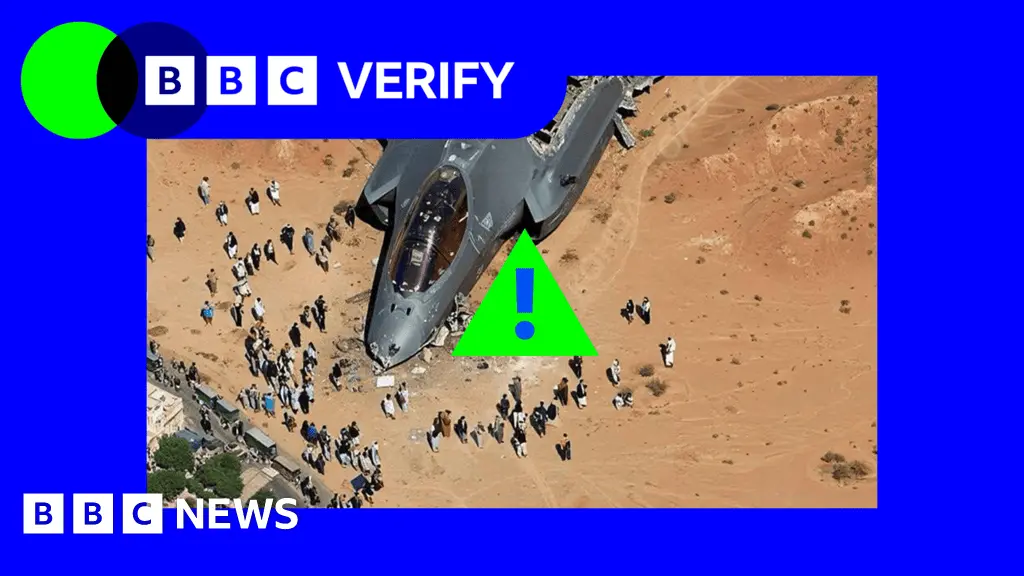Taiwan Accuses China of Using Generative AI to Amplify Disinformation Campaign
5 Sources
5 Sources
[1]
Taiwan says China using generative AI to ramp up disinformation and 'divide' the island
TAIPEI, April 8 (Reuters) - China is using generative artificial intelligence (AI) to ramp up disinformation against Taiwan to "divide" Taiwan's public, the island's National Security Bureau said. Taiwan has accused China of stepping up military drills, trade sanctions and influence campaigns against the island in recent years to force the island to accept Chinese sovereignty claims. Taiwan strongly rejects China's sovereignty claims. China staged two days of war games and live-fire drills near the democratically governed island this month, triggering concern by the United States and many of its allies. In a report to parliament, a copy of which was reviewed by Reuters, the security bureau said it had detected more than half a million pieces of "controversial messages" so far this year, mostly seen on social media platforms including Facebook and TikTok. Beijing has targeted sensitive moments such as President Lai Ching-te's speech on China last month or chipmaker TSMC's (2330.TW), opens new tab announcement of new U.S. investment to launch what the report said was "cognitive warfare", adding such efforts were "designed to create division among our society." "As the application of AI technology becomes more widespread and mature, it has also been found that the Chinese Communist Party has been using AI tools to assist in the generation and dissemination of controversial messages," the report said. China's Taiwan Affairs Office did not respond to a request for comment. The report said China has also ramped up its "grey-zone" tactics against Taiwan, with a sharp increase so far this year in the number of Chinese coast guard incursions as well as air balloons in Taiwan's waters and airspace. Those moves have forced Taiwan to dispatch its own forces in response and depleted its resources, the report said. Lai, who says only Taiwan's people can decide their future, in March labelled China a "foreign hostile force". China has never renounced the use of force to bring Taiwan under Chinese control. Reporting By Yimou Lee; Editing by Raju Gopalakrishnan Our Standards: The Thomson Reuters Trust Principles., opens new tab Suggested Topics:Cybersecurity
[2]
Taiwan Says China Using Generative AI to Ramp up Disinformation and 'Divide' the Island
TAIPEI (Reuters) - China is using generative artificial intelligence (AI) to ramp up disinformation against Taiwan to "divide" Taiwan's public, the island's National Security Bureau said. Taiwan has accused China of stepping up military drills, trade sanctions and influence campaigns against the island in recent years to force the island to accept Chinese sovereignty claims. Taiwan strongly rejects China's sovereignty claims. China staged two days of war games and live-fire drills near the democratically governed island this month, triggering concern by the United States and many of its allies. In a report to parliament, a copy of which was reviewed by Reuters, the security bureau said it had detected more than half a million pieces of "controversial messages" so far this year, mostly seen on social media platforms including Facebook and TikTok. Beijing has targeted sensitive moments such as President Lai Ching-te's speech on China last month or chipmaker TSMC's announcement of new U.S. investment to launch what the report said was "cognitive warfare", adding such efforts were "designed to create division among our society." "As the application of AI technology becomes more widespread and mature, it has also been found that the Chinese Communist Party has been using AI tools to assist in the generation and dissemination of controversial messages," the report said. China's Taiwan Affairs Office did not respond to a request for comment. The report said China has also ramped up its "grey-zone" tactics against Taiwan, with a sharp increase so far this year in the number of Chinese coast guard incursions as well as air balloons in Taiwan's waters and airspace. Those moves have forced Taiwan to dispatch its own forces in response and depleted its resources, the report said. Lai, who says only Taiwan's people can decide their future, in March labelled China a "foreign hostile force". China has never renounced the use of force to bring Taiwan under Chinese control. (Reporting By Yimou Lee; Editing by Raju Gopalakrishnan)
[3]
Taiwan says China using AI to 'divide' the island with disinformation
China is using generative artificial intelligence (AI) to ramp up disinformation against Taiwan to "divide" Taiwan's public, the island's National Security Bureau said. Taiwan has accused China of stepping up military drills, trade sanctions and influence campaigns against the island in recent years to force the island to accept Chinese sovereignty claims. Taiwan strongly rejects China's sovereignty claims. China staged two days of war games and live-fire drills near the democratically governed island this month, triggering concern by the United States and many of its allies.
[4]
Taiwan accuses China of using generative AI to divide nation
Taiwan has accused China of stepping up military drills, trade sanctions and influence campaigns against the island in recent years. China is using generative artificial intelligence (AI) to ramp up disinformation against Taiwan to "divide" Taiwan's public, the island's National Security Bureau said. Taiwan has accused China of stepping up military drills, trade sanctions and influence campaigns against the island in recent years to force the island to accept Chinese sovereignty claims. Taiwan strongly rejects China's sovereignty claims. China staged two days of war games and live-fire drills near the democratically governed island this month, triggering concern by the United States and many of its allies. In a report to parliament, a copy of which was reviewed by Reuters, the security bureau said it had detected more than half a million pieces of "controversial messages" so far this year, mostly seen on social media platforms including Facebook and TikTok. Beijing's strategy Beijing has targeted sensitive moments such as President Lai Ching-te's speech on China last month or chipmaker TSMC's 2330.TW announcement of new US investment to launch what the report said was "cognitive warfare," adding such efforts were "designed to create division among our society." "As the application of AI technology becomes more widespread and mature, it has also been found that the Chinese Communist Party has been using AI tools to assist in the generation and dissemination of controversial messages," the report said. China's Taiwan Affairs Office did not respond to a request for comment. The report said China has also ramped up its "grey-zone" tactics against Taiwan, with a sharp increase so far this year in the number of Chinese coast guard incursions as well as air balloons in Taiwan's waters and airspace. Those moves have forced Taiwan to dispatch its own forces in response and depleted its resources, the report said. Lai, who says only Taiwan's people can decide their future, in March labeled China a "foreign hostile force." Stay updated with the latest news! Subscribe to The Jerusalem Post Newsletter Subscribe Now China has never renounced the use of force to bring Taiwan under Chinese control.
[5]
Taiwan says China using generative AI to ramp up disinformation and 'divide' the island
TAIPEI (Reuters) - China is using generative artificial intelligence (AI) to ramp up disinformation against Taiwan to "divide" Taiwan's public, the island's National Security Bureau said. Taiwan has accused China of stepping up military drills, trade sanctions and influence campaigns against the island in recent years to force the island to accept Chinese sovereignty claims. Taiwan strongly rejects China's sovereignty claims. China staged two days of war games and live-fire drills near the democratically governed island this month, triggering concern by the United States and many of its allies. In a report to parliament, a copy of which was reviewed by Reuters, the security bureau said it had detected more than half a million pieces of "controversial messages" so far this year, mostly seen on social media platforms including Facebook and TikTok. Beijing has targeted sensitive moments such as President Lai Ching-te's speech on China last month or chipmaker TSMC's announcement of new U.S. investment to launch what the report said was "cognitive warfare", adding such efforts were "designed to create division among our society." "As the application of AI technology becomes more widespread and mature, it has also been found that the Chinese Communist Party has been using AI tools to assist in the generation and dissemination of controversial messages," the report said. China's Taiwan Affairs Office did not respond to a request for comment. The report said China has also ramped up its "grey-zone" tactics against Taiwan, with a sharp increase so far this year in the number of Chinese coast guard incursions as well as air balloons in Taiwan's waters and airspace. Those moves have forced Taiwan to dispatch its own forces in response and depleted its resources, the report said. Lai, who says only Taiwan's people can decide their future, in March labelled China a "foreign hostile force". China has never renounced the use of force to bring Taiwan under Chinese control. (Reporting By Yimou Lee; Editing by Raju Gopalakrishnan)
Share
Share
Copy Link
Taiwan's National Security Bureau reports that China is leveraging generative AI to intensify its disinformation efforts against the island, aiming to create societal divisions. This comes amid escalating tensions and military activities in the region.

China's AI-Powered Disinformation Campaign
Taiwan's National Security Bureau has reported that China is employing generative artificial intelligence (AI) to escalate its disinformation efforts against Taiwan. This revelation comes as part of a broader pattern of increased pressure from China, including military drills and economic sanctions, aimed at forcing Taiwan to accept Chinese sovereignty claims
1
.Scale and Platforms of Disinformation
According to a report submitted to Taiwan's parliament, more than half a million pieces of "controversial messages" have been detected so far this year. These messages are primarily disseminated through popular social media platforms such as Facebook and TikTok
2
.Targeted Moments and "Cognitive Warfare"
The report highlights that Beijing has strategically targeted sensitive moments to launch what it terms "cognitive warfare." These include President Lai Ching-te's recent speech on China and chipmaker TSMC's announcement of new U.S. investments. The National Security Bureau asserts that these efforts are "designed to create division among our society"
4
.AI's Role in Message Generation
As AI technology becomes more sophisticated and widely available, the Chinese Communist Party has reportedly been utilizing AI tools to assist in generating and disseminating controversial messages. This marks a significant escalation in the complexity and potential reach of disinformation campaigns
5
.Escalation of "Grey-Zone" Tactics
In addition to the AI-powered disinformation campaign, the report notes an increase in China's "grey-zone" tactics against Taiwan. There has been a sharp rise in Chinese coast guard incursions and the presence of air balloons in Taiwan's waters and airspace. These actions have compelled Taiwan to deploy its own forces in response, potentially depleting its resources
1
.Related Stories
Regional Tensions and International Concern
China's recent two-day war games and live-fire drills near Taiwan have heightened tensions in the region and sparked concern among the United States and its allies. These military exercises, coupled with the intensified disinformation campaign, underscore the complex and evolving nature of the China-Taiwan relationship
3
.Taiwan's Stance and China's Position
President Lai Ching-te has maintained that only Taiwan's people can decide their future, recently labeling China as a "foreign hostile force." Taiwan continues to strongly reject China's sovereignty claims. Meanwhile, China has not renounced the use of force as a means to bring Taiwan under its control
4
.References
Summarized by
Navi
[2]
[4]
Related Stories
Recent Highlights
1
OpenAI secures $110 billion funding round from Amazon, Nvidia, and SoftBank at $730B valuation
Business and Economy

2
Anthropic stands firm against Pentagon's demand for unrestricted military AI access
Policy and Regulation

3
Pentagon Clashes With AI Firms Over Autonomous Weapons and Mass Surveillance Red Lines
Policy and Regulation








